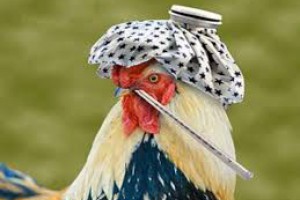Bird flu reaches Argentina and Uruguay

All countries in South America have confirmed cases of avian influenza, with the exception of Brazil, Guyana and Suriname. However, the proximity of Brazil's productive regions and the absence of major geographic barriers further increase the likelihood that the virus will reach the world's largest chicken exporter.
In the case of Uruguay, the virus was found in a swan near Lagoa Garzon on the country's south coast. In Argentina, the disease has been identified in the province of Jujuy in Andean geese.
According to the Uruguayan newspaper El Observador, the authorities of the Ministry of Livestock, Agriculture and Fisheries are assessing the situation and will take appropriate measures.
Meanwhile, Argentine Minister of Agriculture, Livestock and Fisheries Juan José Bajillo called an emergency meeting on the matter. “The presence of the virus in Argentina alarms all our services, but we are not surprised. We are already working with various prevention organizations and territorial coverage to control the problem,” the secretary said. According to him, the most common route of entry is through migratory birds, which are difficult to control. “Bird migrations brought the disease-causing virus from the northern hemisphere,” he adds.
Avian influenza wiped out millions of birds in Europe, North America and Asia in the months before it arrived in South America.
In Brazil, following confirmation in neighboring countries, the Brazilian Animal Protein Association (ABPA) issued a notice saying "it is monitoring the evolution of the situation." The disease is devastating to birds and could cost €2.4 billion worth of damage to the Brazilian poultry sector, according to a survey.
AVRA stated that it is in direct contact with the Asociación de Productores Avícolas Sur, the regional poultry representative, as well as members of other organizations in Latin America. The task is to monitor the situation together with the Ministry of Agriculture and Livestock.
In the note, ABPA highlights the importance for Brazil, which remains free of avian influenza, of adhering to biosecurity protocols, especially with regard to protecting its commercial flocks.




























































